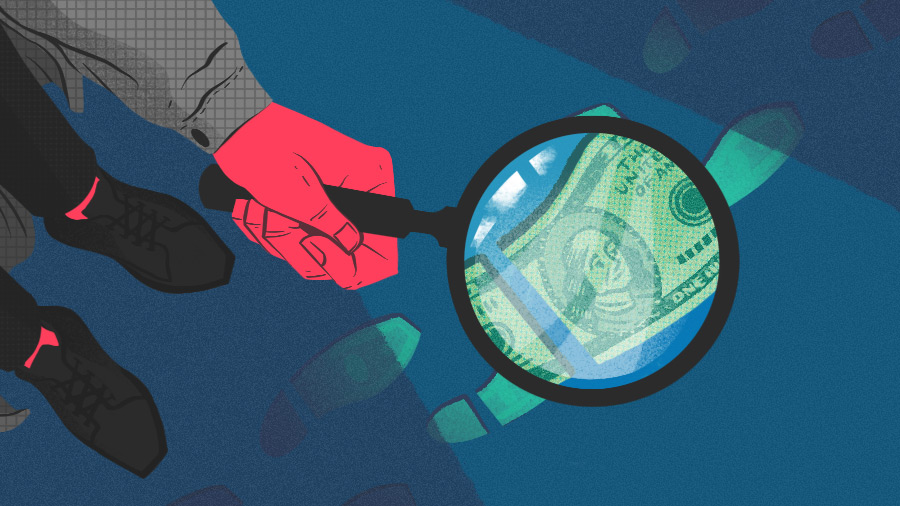The way consumers devour digital media today vaguely resembles a pit stop at a 7-11. Given a choice of Cheetos, cookies and soda, we gorge on all of it—then feel slightly ill.
Subscribe to the Crunchbase Daily
In the same manner, many of us spend hours following clickbait links, binge-watching shows, and scrolling through endless threads of posts, tweets and stuff to buy. We later emerge regretful for wasting time that could’ve been spent on more productive pursuits.
Theoretically, we could use all that screen time to educate ourselves, carry out important work and personal tasks, and connect with loved ones. By the same token, it’s also hypothetically possible to get a healthy meal at a pit stop. It just doesn’t usually happen that way.
“We’ve all felt the collective societal nausea that’s resulted from 15 years of consuming empty clickbait calories on our smartphones,” writes Rishi Garg, a partner at Mayfield Fund1. But can we do better? That’s the question startup investors, entrepreneurs and social media pros have been wrestling with more intensely in recent quarters.
The broad conclusion: Yes we can. However, it will require more than just better digital media options. As consumers, we will also have to change the way we devour content. Or, to continue the food metaphor: It’s not enough to provide an organic kale salad. Someone also has to eat it.
How? For this latest column, we make an abridged attempt at an answer, talking to investors and entrepreneurs and pulling some data dives around the theme of healthy digital media consumption.
Identifying digital junk food
First, the bad stuff. Nearly two decades into the rise of social media, we now know a thing or two about what makes it unhealthy.
“Asynchronous, text or video-based snackable content broadcast to the world, is going to lead to junk,” said Garg. In other words, tweets and posts about nothing timely by famous people you’ve never met are probably not the mentally nutritious choice.
Even social media companies recognize this. Last time we wrote on this theme, we cited an article from Facebook itself on the topic: “Is Spending Time on Social Media Bad for Us?” The authors considered whether most people “are simply consuming trivial updates and polarizing memes at the expense of time with loved ones.” They found that passively consuming social media content correlates with feeling worse.
The business model around social media contributes to how unhealthy it is, Garg noted, with revenue tied more to time spent on the platform than value derived from it. It’s a sentiment echoed by Rahul Vohra, CEO of Superhuman, a startup focused on reducing time spent poring through inboxes.
“Most free apps have us as the product. You are the one being monetized,” he said. Thus, platforms aren’t optimized around providing the most pleasant and productive experience for the consumer.
Getting to healthier
Healthy, productive social media user experiences, Garg observed, tend to have a similar set of features. They are more likely to be interactive, live, in-depth and involve genuine human interaction. While you don’t need all these elements at once, generally the more the better.
At the moment, it’s unclear how large a role startups will play in a shift toward healthier digital and social media consumption. It’s possible to pursue healthier habits on existing social media platforms. But by the same token, investors and entrepreneurs see benefits in upstart options built from the ground up with an eye toward a more wholesome user experience.
“It’s very hard after the fact to bolt on trust and safety” Garg said, noting that a persistent issue with Facebook and Twitter is that neither were founded with a particular moral premise. It’s not that they set out with malicious intent, he added, and more that founders just put something out there to see if it would catch on.
In the startup field, Garg pointed to a number of companies that are setting out with a mission to make online social interactions more fulfilling, often with a focus on hosted forums. Others are focused on online meetings, artificial intelligence-enabled professional matchmaking, and other areas.
We list a few below, combing some of Garg’s picks and other intriguing startups from the Crunchbase dataset:
- Clubhouse, one of Garg’s picks, is an audio-based social app that allows users to spontaneously join group chats. Although it’s still in private beta testing, the year-old, San Francisco company has already raised $10 million in venture funding.
- Lunchclub, another one of Garg’s picks, uses AI to match people for one-on-one video meetings and has raised $4.6 million in seed funding.
- Hopin, the London-based live virtual events platform, reportedly hit a valuation of $2.2 billion in its last reported funding round in November.
- Run The World, a Silicon Valley-based digital event platform founded in 2019, has raised $14.8 million to date.
- Glimpse uses a speed-matching system to match users with a compatible peer for one-on-one video conversations. The San Francisco startup is backed by Y Combinator.
The pandemic accelerated changes. What lies ahead?
The habit-changing effects of the COVID-19 pandemic have been widespread in the digital realm. More of us, whether we like it or not, are using video chat and meeting apps, taking online classes, and trying to find fulfilling ways to fill our time in a world where face-to-face interaction is far more limited.
So we’re online more, and out and about less. One result, Garg observed, is that people are increasingly looking to their devices to provide a sense of human connection.
Vohra sees our current plight as raising demand for humanistic technology, which he defines as “technology that is designed to harmonize and add positivity and energy and uplift us, rather than consume us.”
How do business models work in a world of humanistic technology? Vohra said the imperative is that you don’t optimize for constant engagement.
“Instead of optimizing for the amount of time people spend on your product, you optimize for the amount of value,” he said.
Ideally, this could all lead to a world where screen time leaves us feeling refreshed, connected and informed. Of course, social platforms optimized for healthy use can only do so much on their own. We also have to use them.
Illustration: Dom Guzman

Stay up to date with recent funding rounds, acquisitions, and more with the Crunchbase Daily.




![M&A - Illustration of a magnet attracting various products. [Dom Guzman]](https://news.crunchbase.com/wp-content/uploads/mergers_and_acquisitions-470x352.jpg)
![Illustration of a guy watering plants with a blocked hose - Global [Dom Guzman]](https://news.crunchbase.com/wp-content/uploads/quarterly-global-3-300x168.jpg)
67.1K Followers